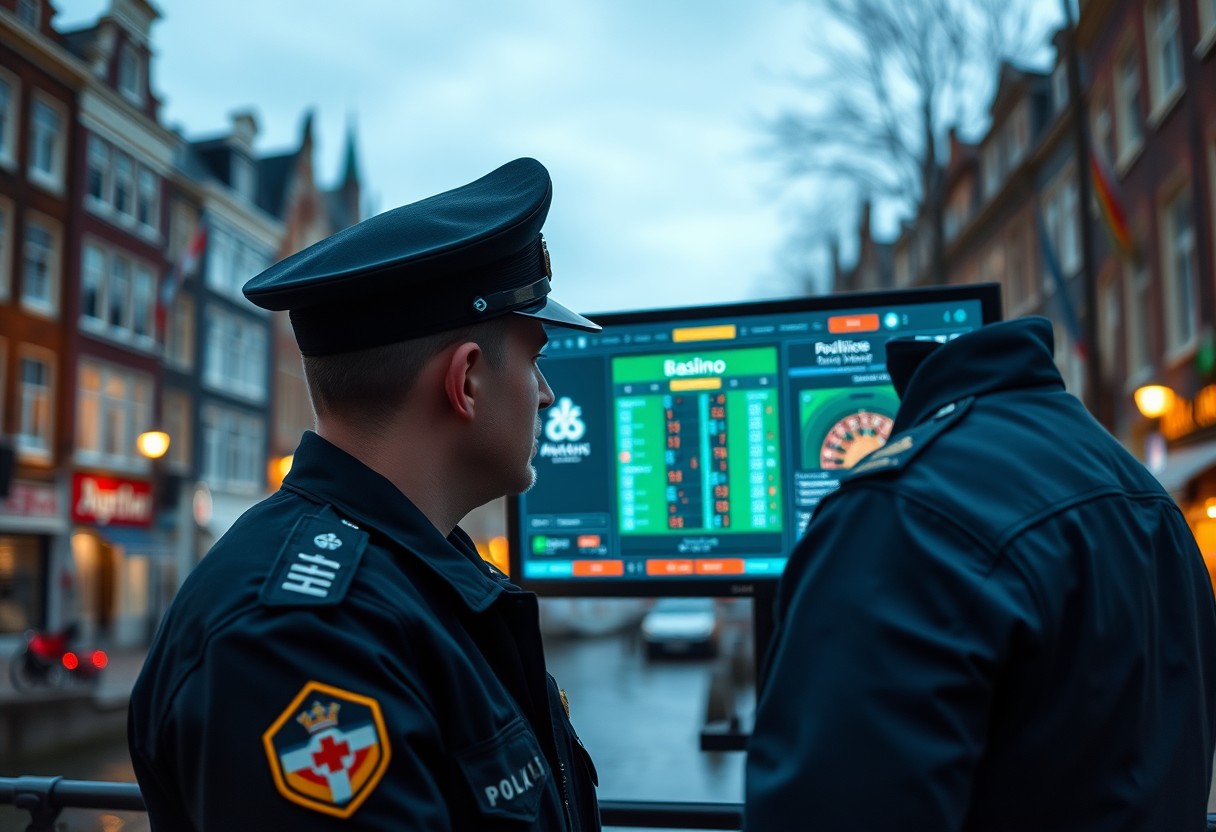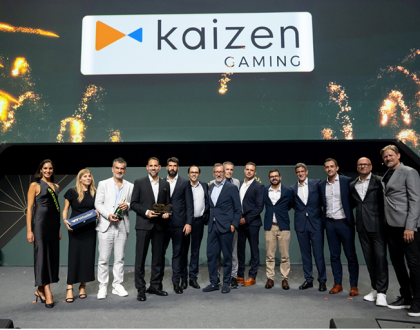The Netherlands’ War on Illegal Online Casinos

Netherlands has taken significant steps to combat illegal online casinos, implementing strict regulations to deter unlicensed operators and protect consumers. With the introduction of the Remote Gambling Act, the Dutch government is not only aiming to regulate the gambling industry more effectively but also to curb the rising tide of illegal online gambling activities. This blog post explores the current state of these efforts, the impacts on both consumers and operators, and what the future holds for the ongoing battle against illegal online casinos in the Netherlands.
The Current Legal Landscape of Online Gambling in the Netherlands
Before the introduction of the Remote Gambling Act in 2021, the Netherlands had a somewhat restrictive approach towards online gambling, with many offshore operators thriving without regulation. The shift in legislation aimed to create a safer, more controlled environment for Dutch players, combatting illegal operations while promoting responsible gambling practices. As a result, the online gambling market is now more regulated, ensuring consumer protection and fair competition among licensed operators.
Overview of the Remote Gambling Act
Any online gambling operator looking to engage with Dutch players must comply with the Remote Gambling Act, which establishes a comprehensive framework for regulated online gaming. This act was implemented to regulate various forms of online gambling, ensuring operators adhere to strict guidelines while prioritizing player protection and promoting responsible gaming. The legislation reflects the Netherlands' commitment to combating illegal online gambling by providing a legal alternative for players.
Licensing Requirements for Operators
Online operators must obtain a license from the Dutch Gambling Authority, known as the Kansspelautoriteit, to legally offer services in the Netherlands. This licensing process is rigorous and designed to ensure that only responsible operators are granted permission to function within the regulated market.
Requirements for obtaining a license include demonstrating financial stability, having robust cybersecurity measures, and implementing responsible gambling practices. Additionally, operators must ensure fair games and transparent payment processes, as well as contribute to the Dutch Treasury through taxation. By imposing these strict criteria, the Dutch government aims to enhance player safety and curb the prevalence of illegal online gambling. Operators found in violation of these requirements may face hefty penalties, including license revocation.
The Emergence of Illegal Online Casinos
Some might argue that the surge in illegal online casinos is a direct response to evolving digital landscapes and consumer behavior. As the demand for online gambling platforms continues to rise, these illegal entities capitalize on loopholes and the lack of regulation. This emergence poses significant challenges for regulatory bodies aiming to protect consumers and ensure fair play within the gambling industry.
Factors Contributing to Their Growth
With the rapid advancement of technology and the increasing accessibility of the internet, several factors have fueled the growth of illegal online casinos:
- Limited availability of legal gambling options
- High operational costs for licensed casinos
- Attractive bonuses and incentives offered by illegal operators
- Anonymous payment methods appealing to covert players
Recognizing these factors is crucial for understanding the complexity of the illegal gambling landscape.
Impact on Consumers and the Gambling Market
Contributing to the troubles faced by the gambling market, illegal online casinos create a myriad of issues for consumers, including a lack of consumer protection and the risk of addiction. They also undermine legitimate gambling businesses by undercutting prices and promoting unscrupulous practices.
Understanding the implications of illegal online casinos on consumers and the gambling market reveals significant concerns regarding player safety and industry integrity. Consumers are often vulnerable to fraud, lack access to fair treatment, and can face severe financial losses. Furthermore, the presence of illegal operators can distort the gambling market, leading to an uneven playing field for licensed establishments that adhere to regulations and responsible gaming practices.
Government Strategies Against Illegal Online Casinos
Clearly, the Netherlands is taking a proactive approach to combat illegal online casinos through various government strategies. These measures include strict regulatory frameworks, public awareness campaigns, and ongoing assessments of the gambling market to adapt to emerging threats. By reinforcing legal pathways for online gambling while simultaneously targeting unlawful operators, the government aims to protect consumers and uphold the integrity of the gambling industry in the country.
Enforcement Actions and Penalties
Government agencies have implemented stringent enforcement actions against illegal online casinos, which include hefty fines and the potential for criminal charges. Regulatory bodies actively monitor online gambling activities, shutting down unauthorized operators and blocking access to non-compliant sites. These firm measures are intended to deter illegal gambling and ensure that licensed operators can thrive in a fair regulatory environment.
Collaboration with International Authorities
Any effective strategy to combat illegal online casinos involves collaboration with international authorities. The Netherlands recognizes that many illegal operators are based abroad, making it crucial to work alongside other countries to share information and resources.
Collaboration between the Netherlands and international authorities facilitates coordinated enforcement actions, enabling the tracking of illicit online gambling networks and enhancing the exchange of intelligence. This global partnership fosters a united front against illegal operators, helping to dismantle cross-border gambling activities that undermine local regulations. Such cooperative efforts not only strengthen the enforcement framework in the Netherlands but also promote responsible gambling standards worldwide.
The Role of Technology in Monitoring
Unlike traditional methods, technology has revolutionized the approach to monitoring illegal online casinos in the Netherlands. Through advanced tools and platforms, regulators are now able to track gambling activities in real-time, offering a more proactive stance against illicit operations. This modernized surveillance facilitates more effective enforcement of laws and helps ensure a safer online gambling environment for users.
Use of Data Analytics and AI
Role of data analytics and artificial intelligence (AI) in the fight against illegal online casinos cannot be understated. These cutting-edge technologies enable regulators to sift through vast amounts of data swiftly, identifying patterns and anomalies that signal unauthorized activities. By leveraging these insights, authorities can target enforcement efforts more effectively, thereby increasing the chances of dismantling illegal operations.
Cybersecurity Measures
Role of cybersecurity measures is critical in safeguarding both regulators and consumers from the threats posed by illegal online casinos. Effective cybersecurity protocols help prevent data breaches, financial fraud, and the exploitation of vulnerable players, thus reinforcing consumer protection and maintaining the integrity of the gambling market.
Data breaches and cyber-attacks remain pressing concerns in the online gambling landscape. The implementation of robust cybersecurity measures, such as encryption protocols and secure payment gateways, is important for protecting sensitive information from malicious actors. Additionally, continuous monitoring and updating of security systems can help mitigate risks, ensuring that both users' data and the regulatory framework are safeguarded against evolving cyber threats.
Consumer Protection and Awareness Initiatives
To combat the rising threat of illegal online casinos in the Netherlands, the government has implemented various consumer protection and awareness initiatives. These programs aim to educate players about their rights and the potential risks associated with unregulated gambling. By fostering a better understanding of safe gaming practices, authorities hope to minimize harm while encouraging citizens to choose licensed operators that adhere to local regulations.
Educating the Public on Legal Options
To ensure that consumers are aware of their legal options, the Netherlands has launched campaigns highlighting the benefits of using licensed online casinos. These initiatives not only promote the importance of playing on regulated platforms but also inform players about protections and support available through official channels. By emphasizing the legal alternatives, the government aims to create a safer gambling environment for all citizens.
Reporting Mechanisms for Illegal Operators
Any concerns regarding illegal online casinos can be reported through various mechanisms established by Dutch authorities. Consumers are encouraged to utilize dedicated hotlines and online forms to flag unlicensed operators effectively. This system empowers citizens to play a proactive role in maintaining a secure gaming landscape while helping the government to enforce laws more effectively.
For instance, the Dutch Gaming Authority has set up an online platform where players can easily report suspicious websites. This initiative not only streamlines the process of flagging illegal operations but also ensures that investigations can be carried out swiftly and effectively. By encouraging public participation, the Dutch government demonstrates its commitment to maintaining a fair and transparent gaming industry while mitigating the risks posed by illicit operators.
Future Outlook for Online Gambling Regulation
Your understanding of the regulatory landscape in the Netherlands is crucial as it evolves to address the challenges posed by illegal online casinos. The government is committed to protecting consumers while promoting a safe and fair gambling environment. Continued collaboration among stakeholders, including law enforcement and industry leaders, will play a pivotal role in shaping comprehensive regulations that adapt to technological advancements and consumer preferences.
Potential Legislative Changes
With ongoing concerns about player protection and market integrity, potential legislative changes may focus on tightening regulations for online operators. The Dutch government is likely to consider enhanced licensing requirements and stricter penalties for those violating existing laws. Further amendments could also address advertising practices and responsible gambling measures, ensuring a balanced approach that promotes fair competition.
Evolving Trends in Online Gambling Behavior
Gambling habits among consumers are rapidly changing, influenced by technology and shifting societal norms. Players are increasingly favoring mobile platforms and innovative gaming experiences, prompting operators to adapt their offerings accordingly. This evolution necessitates a responsive regulatory framework to ensure that regulations keep pace with emerging trends, safeguarding players while encouraging responsible gambling practices.
Gambling behavior is shifting dramatically as players seek more personalized and immersive experiences. The rise of live dealer games and virtual reality casinos reflects a growing demand for interactive elements that replicate the feel of traditional betting environments. Moreover, younger demographics are drawn to gamification features, leading to increased engagement and higher wagering levels. This behavioral evolution underscores the need for regulators to stay ahead of the curve, ensuring that laws remain relevant in balancing player enjoyment with responsible gambling initiatives.
Summing up
Conclusively, the Netherlands' ongoing war against illegal online casinos demonstrates a robust commitment to regulatory oversight and consumer protection. As the government continues to refine its approach, increasing collaboration with law enforcement and enhanced public awareness strategies are vital for curbing illicit activities in the online gambling sector. Looking ahead, sustainable enforcement mechanisms and responsive legislation will be crucial in balancing taxation and revenue generation with the protection of players from fraud and addiction, ultimately fostering a safer and more responsible gaming environment.
FAQs
What is the Remote Gambling Act in the Netherlands?
The Remote Gambling Act, implemented in 2021, regulates online gambling in the Netherlands. It sets strict guidelines for operators to ensure consumer protection and responsible gaming practices, aiming to curb illegal online gambling.
How can online gambling operators obtain a license in the Netherlands?
Operators must apply for a license from the Dutch Gambling Authority (Kansspelautoriteit). The process involves demonstrating financial stability, implementing robust cybersecurity measures, and adhering to responsible gambling practices.
What are the penalties for illegal online casinos in the Netherlands?
Penalties for illegal online casinos can include hefty fines, criminal charges, and shutdowns of operations. Regulatory bodies actively monitor and enforce compliance to deter unlawful activities.
How does the Netherlands collaborate with international authorities to combat illegal online casinos?
The Netherlands works with international authorities to share information and resources, facilitating coordinated enforcement actions and dismantling cross-border illegal gambling networks.
What role does technology play in monitoring illegal online casinos?
Technology, including data analytics and AI, enhances monitoring by enabling real-time tracking of gambling activities. These tools help regulators identify unauthorized operations and enforce laws more effectively.
Michael
With over 20 years experience in web design, SEO and website promotion I always give you an expert advice in regard to any issues related to your Site Design, SEO, Internet Marketing, Promotion, Backlinks, Site Content. In order to help you find out what is missing or can be improved and get higher rankings in Google and more traffic.
Recommended Posts

Evolution’s Live Casino Studio Opens in Prague
October 5, 2024

Kaizen Gaming’s Success at SBC Awards 2024
October 4, 2024

Sportingtech Boosts Security with Continent 8
October 4, 2024




